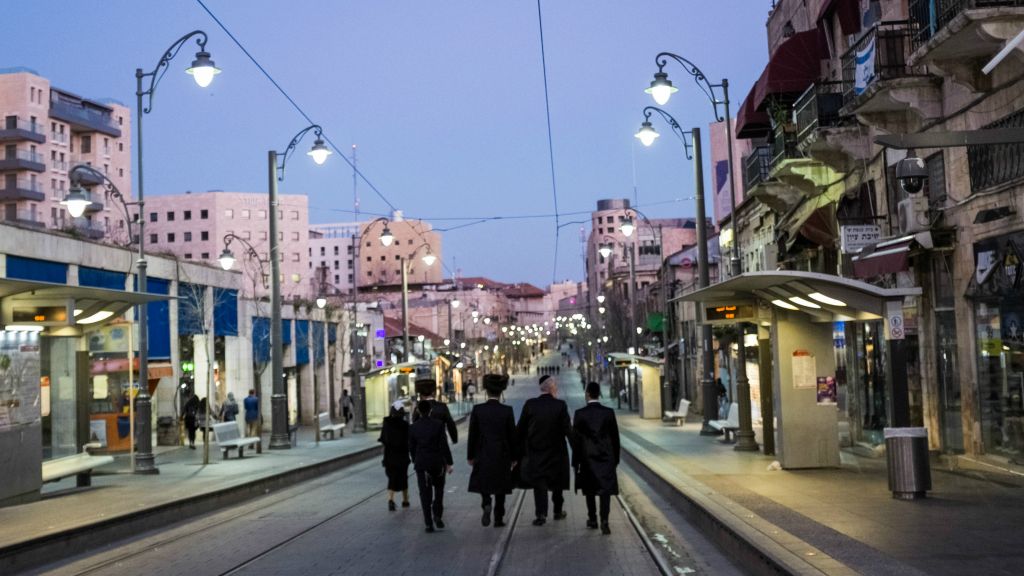 |
| Friday evening in Jerusalem - no need for caution when walking on tram tracks! |
There is just something magical about the way that the country starts slowing down around mid-afternoon Friday, as Shabbat approaches. As I write this, it is about 2.30PM Friday and I feel it. No, things are not completely quiet. Friday afternoon is a popular time for teenage boys to scream around the neighborhood on anything propelled by an internal combustion engine; right now, quad ATV's seem to be all the rage, and the more ineffective the muffler, the better. So, it's not as if the air becomes more still. In fact there's a bustle about Fridays as people who are Sabbath-observant rush around to make preparations. Friday mornings are not a good time to have to do any shopping, because everybody seems to be in a rush and a crush to get things done. But once the noon hour passes, you can feel the change. Traffic on the streets, heavy on Friday mornings, starts to thin out. The smells of cooking are everywhere. Coming home from the bakery to buy my loaves of challah and a cake for Shabbat, I joyously breathed in the savory aromas of cooking that seemed to emanate from every apartment as I walked home. (My own included, as Clara was cooking up a storm.) Any other time of the week, when concluding a transaction in a shop you might get a yom tov (good day) from the clerk or salesperson. But on Fridays (really, it starts Thursdays, because the assumption is that they won't see you again before the Sabbath) you get a Shabbat shalom.
 |
| Even in decidedly-secular Tel Aviv, one feels the change as Shabbat falls. |
Even among the non-religious, it is common for a family to gather for a big dinner on Friday evening. The kids in the army are often home on leave, and the kids beyond army age who have gone off to start lives of their own often still come home to their parents' homes to share the Friday evening meal.
On Saturday morning, the religious are of course back at synagogue for the morning prayers and Torah reading. The non-religious, if they aren't relaxing at home, are outside, walking, running, going to the beach, gathering in a park. Because the weather is good almost any day of the year here (right now in Ashqelon it is 26 Celsius, down from today's high of 28...and it's the 22nd of December), people tend to go outside a lot. But the main thing is that, on Shabbat, few people are going to work or rushing around. It's as if the entire country 'takes a chill pill.'
To me, that's a big draw to life in Israel; the sense of shared slowing-down that happens once a week and on other occasions when holidays occur. Whether one observes these days in a religious or secular fashion, they still happen - and they influence how the entire country behaves.
No comments:
Post a Comment